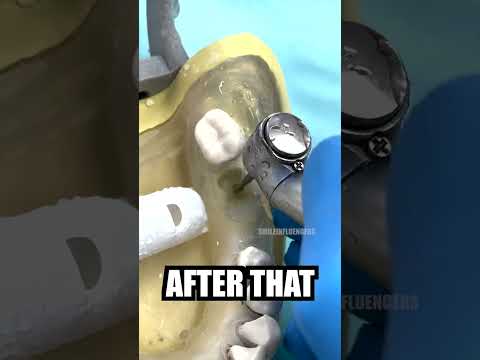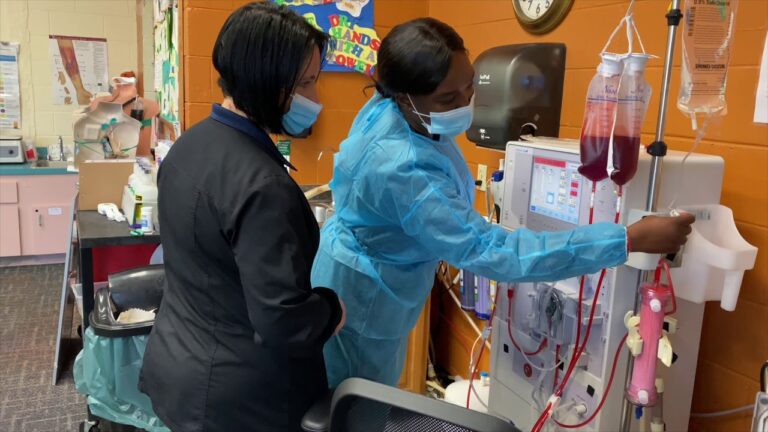Dentist Job: Description & Salary

Dentist Job Description Template
Dentist Job Description A dentist is a medical professional who specializes in oral health care. They are responsible for diagnosing and treating dental issues, as well as providing preventive care and advice to patients. Dentists work in dental clinics, hospitals, and private practices, and may also perform surgeries and procedures to improve the overall oral health of their patients. Attention to Detail: Dentists must have a keen eye for detail as they work with small instruments and perform intricate procedures in the oral cavity. They need to accurately diagnose dental problems and develop effective treatment plans for their patients. Communication Skills: Effective communication is crucial for dentists as they need to explain complex dental procedures and treatment options to patients in a clear and concise manner. They must be able to make patients feel comfortable and at ease during their visits, as many people experience anxiety when visiting the dentist. Other important responsibilities of dentists include conducting regular dental check-ups, performing teeth cleanings, taking X-rays, and filling cavities. They may also specialize in areas such as orthodontics, endodontics, periodontics, or oral surgery. To become a dentist, one must complete a bachelor’s degree, followed by four years of dental school. After obtaining a dental degree, dentists must also pass a licensing examination to practice professionally. Continuous education is also essential for dentists to stay updated with the latest advancements in dental technology and treatments. In conclusion, dentists play a vital role in ensuring the overall oral health of individuals. Their expertise and knowledge in diagnosing and treating dental problems are crucial for maintaining healthy teeth and gums.Dentist Responsibilities
Dentist Requirements
How Much Does A Dentist Make?
Dentist Salary
| Country | Salary (per year) |
|---|---|
| United States | $160,000 – $220,000 |
| United Kingdom | £50,000 – £110,000 |
| Australia | AUD 80,000 – AUD 160,000 |
| Canada | CAD 80,000 – CAD 180,000 |
| Germany | €40,000 – €80,000 |
A dentist’s salary varies depending on the country they practice in. In the United States, dentists can earn anywhere between $160,000 to $220,000 per year. In the United Kingdom, the salary ranges from £50,000 to £110,000. Australia offers salaries ranging from AUD 80,000 to AUD 160,000, while in Canada it can go from CAD 80,000 to CAD 180,000. In Germany, dentists can expect to earn between €40,000 to €80,000 per year.
Dentist Salaries by Country
Top Paying Countries for Dentists
| Country | Average Annual Salary |
|---|---|
| Switzerland | $180,000 |
| Norway | $160,000 |
| United States | $150,000 |
| Australia | $140,000 |
| Canada | $130,000 |
Dentists in Switzerland earn the highest average annual salary of $180,000, making it the top paying country for dentists. Norway follows closely behind with an average salary of $160,000. The United States, Australia, and Canada also offer attractive salaries for dentists, ranging from $130,000 to $150,000 per year.
A video on the topic Dentist
Video Source : Smile InfluencersInterview Questions for Dentist
1. What made you decide to become a dentist?
I have always been fascinated by the field of healthcare and wanted to make a positive impact on people’s lives. Dentistry allows me to combine my passion for science with my desire to help others, so it was a natural career choice for me.
2. How do you stay updated with the latest advancements in dentistry?
I believe in the importance of lifelong learning, so I regularly attend dental conferences, workshops, and seminars to stay updated with the latest advancements in dentistry. I also subscribe to reputable dental journals and participate in online forums and discussions with fellow dentists.
3. What is your approach to patient care?
My approach to patient care is centered around building a strong rapport with my patients and understanding their unique needs and concerns. I believe in providing personalized treatment plans and involving patients in the decision-making process. I also prioritize patient education and strive to empower them to take control of their oral health.
4. How do you handle patients with dental anxiety?
I understand that dental anxiety is a common issue and can significantly impact a patient’s experience. I take the time to listen to their concerns and create a comfortable and safe environment. I explain each step of the procedure and offer techniques such as deep breathing exercises or the use of sedation if necessary.
5. Can you explain the importance of regular dental check-ups?
Regular dental check-ups are essential for maintaining good oral health. They allow us to identify and address any potential issues at an early stage before they become more severe and costly to treat. Additionally, routine cleanings help prevent the buildup of plaque and tartar, reducing the risk of gum disease and tooth decay.
6. How do you ensure patient safety in your practice?
Patient safety is of utmost importance to me. I strictly adhere to sterilization and infection control protocols recommended by dental associations. I use disposable materials whenever possible and maintain a clean and hygienic environment. Additionally, I stay updated with the latest research and advancements in dental technology to provide the safest and most effective treatments.
7. What advice would you give to someone who wants to improve their oral health?
I would advise them to maintain a consistent oral hygiene routine, which includes brushing at least twice a day, flossing daily, and using mouthwash. It is also important to eat a balanced diet, limit sugary and acidic foods, and avoid tobacco products. Regular dental check-ups and cleanings are crucial to catch and address any potential issues early on.
8. How do you handle difficult cases or complex dental procedures?
Difficult cases or complex dental procedures require a thorough assessment and careful planning. I collaborate with specialists if necessary and leverage advanced dental technology to ensure accurate diagnoses and treatment. I communicate openly with the patient, explaining the procedure in detail and addressing any concerns they may have.
9. Can you explain the role of preventive dentistry?
Preventive dentistry focuses on taking proactive measures to maintain good oral health and prevent dental problems before they occur. This includes regular dental check-ups, cleanings, and the application of dental sealants or fluoride treatments. Educating patients about proper oral hygiene practices and providing dietary recommendations also play a crucial role in preventive dentistry.
10. How do you handle dental emergencies outside of regular office hours?
I understand that dental emergencies can occur at any time. I have a system in place to handle urgent cases outside of regular office hours. Patients can reach me through an emergency contact number, and I will provide guidance or arrange for immediate treatment if necessary. It is important for patients to know that they are not alone and that help is available when they need it.






